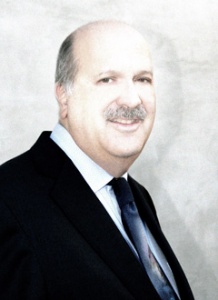November 3rd, 2008 by Dr. Val Jones in Expert Interviews, Opinion
1 Comment »
Following on the heels of the annual ACR scientific assembly (and my interview with Dr. Wallace), I reached out to Sandra Raymond, President and Chief Executive Officer of the Lupus Foundation of America, to discuss lupus from the patient perspective. Sandra’s rhinovirus infection (she had a cold) did not stop her from completing an excellent interview with me.
Listen to the podcast here, or read a summary of the interview below.
Dr. Val: Tell me about the Lupus Foundation of America (LFA).
Raymond: The Lupus Foundation of America is the nation’s leading organization dedicated to finding the causes and cure for lupus. We also provide services, support, and hope to all people living with lupus. We have a national research program called “Bringing Down The Barriers” and we fund grants to researchers in academic institutions across the country. We are also very active on Capitol Hill, lobbying for research and educational efforts. In a few months we’ll be launching a public awareness campaign to help Americans understand this disease.
Dr. Val: Of which key accomplishment of the LFA are you most proud?
Raymond: LFA has been able to expand medical research efforts for lupus. This not only gets us closer to finding a cure, but it offers hope to those who are living with the disease.
Dr. Val: In your view, what do patients with lupus need the most?
Raymond: They need safe, effective, and well-tolerated treatments. November the 20th, 2008, marks 50 years without a new, approved treatment for lupus. The treatments that patients are currently taking can be very harsh. They sometimes cause side effects that are worse than lupus itself! We must step up our research efforts to discover safe and effective treatments to bring this disease under control and provide patients with a better quality of life.
The good news is that there are quite a few pioneering biotech companies who are investing money in finding a cure for lupus. So there may be new drugs on the horizon.
Autoimmune diseases affect 23 million Americans. Lupus accounts for at least 1 million of those, but if we can figure out what causes lupus, there are implications for all disorders of the immune system. Read more »
November 2nd, 2008 by Dr. Val Jones in Expert Interviews
No Comments »

Daniel Wallace, MD
The annual American College of Rheumatology conference was held last week in San Francisco. I had the chance to interview Dr. Daniel Wallace, a world expert in lupus (systemic lupus erythematosis) management, to tell me about the latest advances in the treatment of this disease.
Dr. Wallace is currently a Clinical Professor of Medicine at the David Geffen School of Medicine at UCLA. His clinical practice is based at Cedars-Sinai, where he is involved in the care of 2,000 lupus patients, the largest practice of its kind in the United States. The Wallace Rheumatic Disease Research Center currently runs over 30 clinical trials for patients with lupus and other rheumatic diseases. Dr. Wallace is the author of 6 medical textbooks, 15 book chapters, and over 200 medical publications.
**Listen to the podcast of our interview here**
Dr. Val: What is Lupus?
Dr. Wallace: Lupus is what happens when the body becomes allergic to itself. It’s the opposite of cancer and AIDS. There are probably about 1 million people living with lupus in the United States. Ninety percent of them are women, and 90% develop lupus during their reproductive years.
Dr. Val: Historically speaking, what has treatment been like for patients with lupus, and how has that changed over the years? Read more »
October 17th, 2008 by Dr. Val Jones in Patient Interviews
No Comments »

Deanna and Rebecca Sherman
As many as 15% of Americans have a blood disorder (called anti-phospholipid antibody syndrome – APS) that can increase their risk for blood clots and stroke. While these antibodies are especially common in people with certain auto-immune diseases like SLE (systemic lupus erethematosis – or “lupus”) quite a few people have them without ever knowing it. In fact, most people with APS remain asymptomatic their entire lives – but for an unlucky few, the disorder can cause devastating consequences.
I interviewed Rebecca Sherman about her recent stroke caused by APS. Listen to the podcast here.
Dr. Val: Tell me about the events leading up to your stroke.
Sherman: I was a young, healthy 32-year-old with no idea that I had anti-phospholipid antibodies in my blood. One morning when I was washing my face at my boyfriend’s house I suddenly noticed that one side of it was frozen. I was standing in front of the bathroom sink and I fell to the floor with the washcloth in my hand. I couldn’t walk or talk – the whole right side of my body didn’t do what I wanted it to do. So I threw the washcloth at my boyfriend’s head (with my left hand). Luckily my aim was good (he was asleep in bed) and the bed was near the door to the bathroom – the cold, wet object caused him to jump out of bed and find me. Read more »












